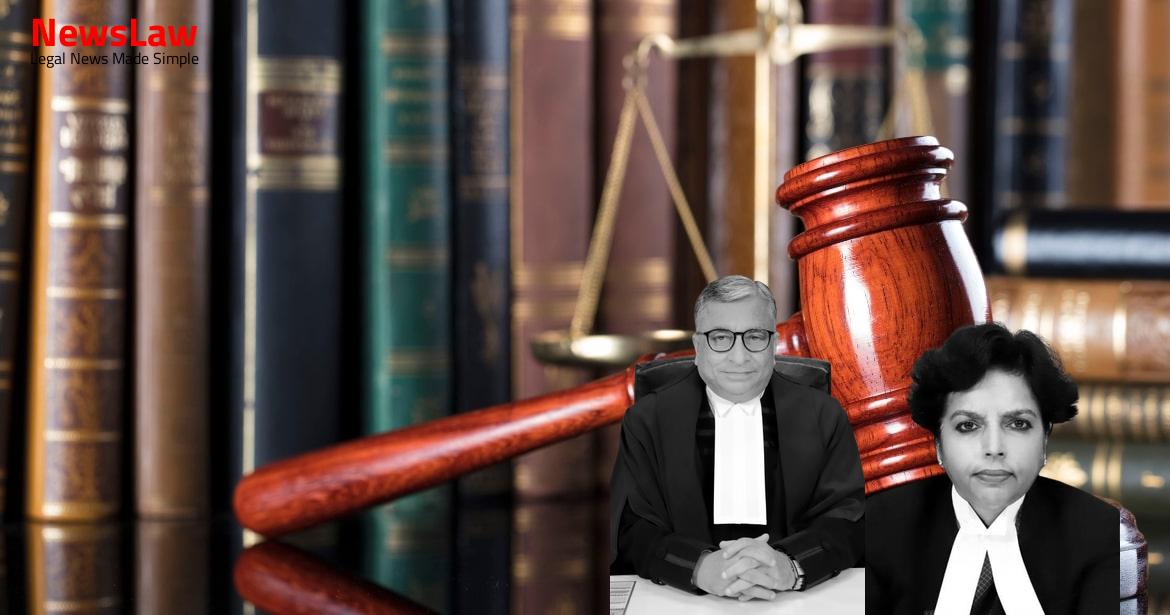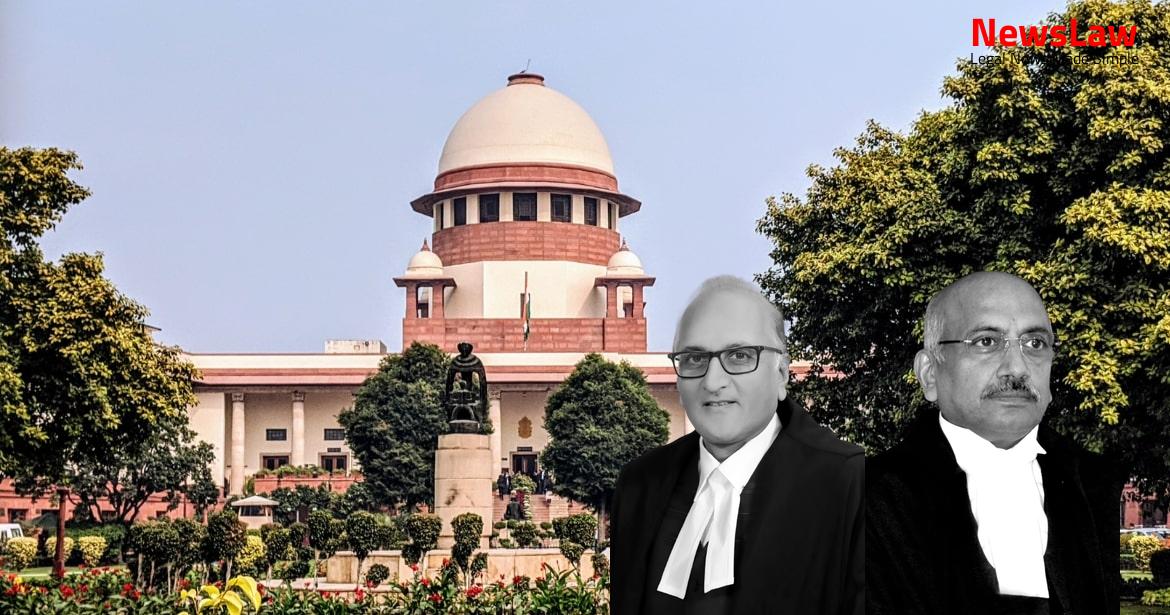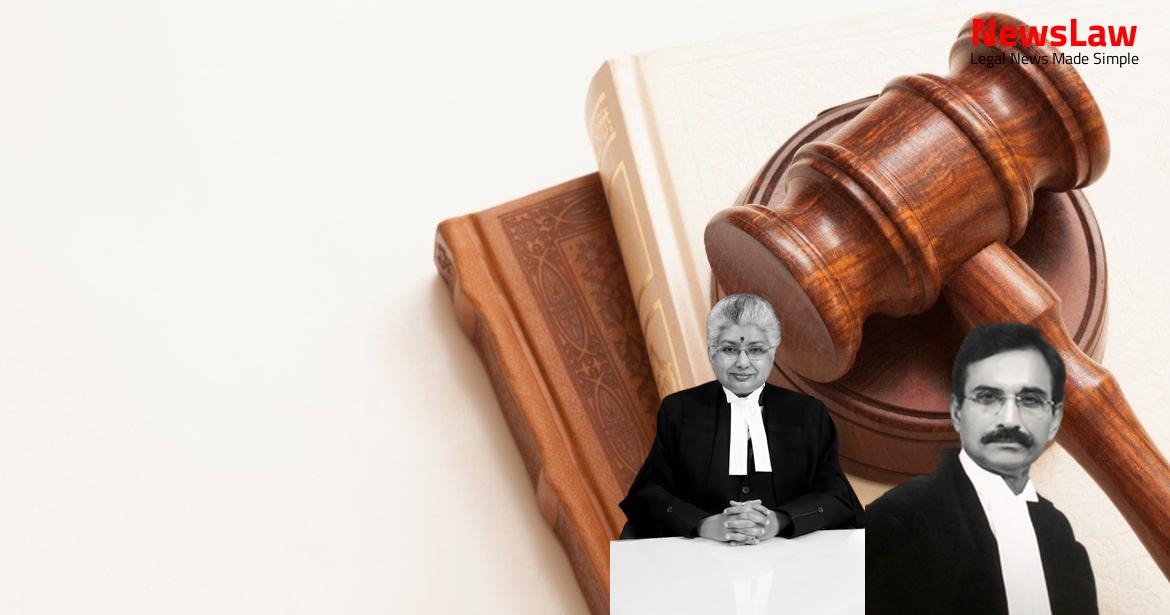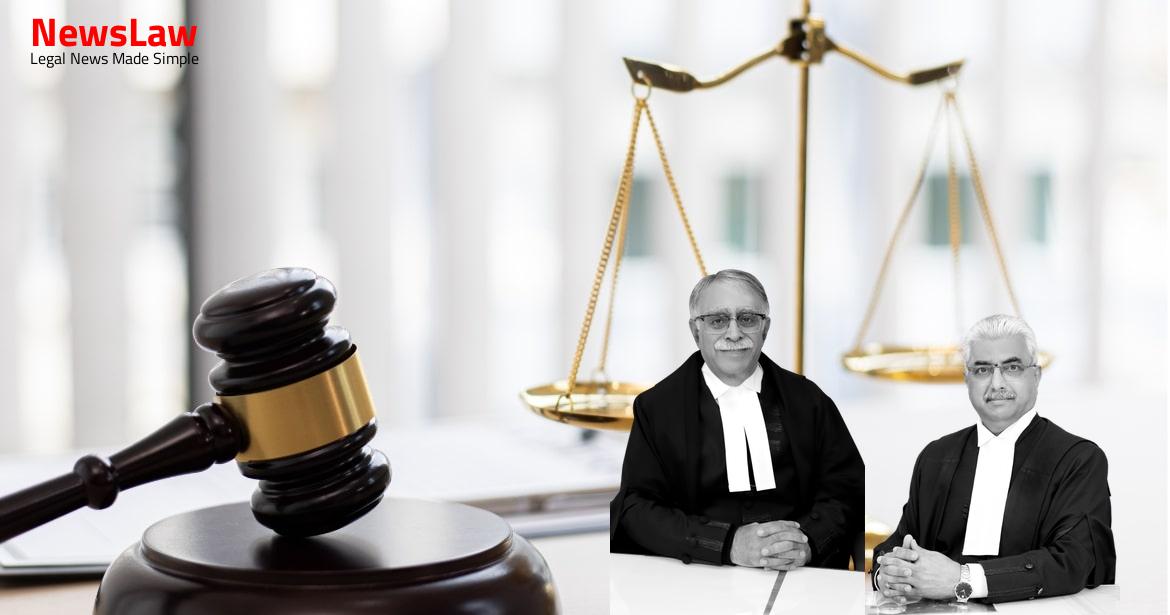The case delves into the intricacies of judicial analysis when it comes to granting or cancelling bail. The High Court’s decision to grant bail to the respondent No. 2 was scrutinized for overlooking crucial factors such as criminal antecedents and potential influence. The appeal for bail cancellation was based on the need to ensure a fair trial and prevent interference with witnesses. The blog sheds light on the legal parameters and grounds for cancelling bail, emphasizing the importance of considering supervening circumstances post-release.
Facts
- Respondent No. 2 had approached the High Court for anticipatory bail which was dismissed on 30 June, 2021.
- A charge-sheet was filed by the prosecution on 25 October, 2021.
- Appellant/complainant filed an appeal seeking cancellation of the regular bail granted to respondent No. 2.
- Impugned order dated 16 November, 2021 allowed the application for cancellation of bail.
- Allegations against respondent No. 2 include inducing physical relationship under false pretext of marriage.
- Respondent No. 2 applied for regular bail under Section 439 of the Cr.P.C. before the Additional Sessions Judge, Jabalpur, Madhya Pradesh.
- The bail application was rejected by an order dated 29 October 2021.
Also Read: Time as Essence of Contract in Sale Agreement: Legal Analysis
Arguments
- Learned counsel for the appellant presented photographs showing the appellant and respondent No.2 in close proximity with vermillion applied on her forehead.
- Appellant consented to a physical relationship with respondent No.2 on the promise of marriage, which did not materialize, leading to a terminated pregnancy.
- Respondent No.2 started threatening the appellant after being released on bail.
- A complaint was lodged regarding respondent No.2’s behavior post-release, including mounting hoardings in the city celebrating his release.
- The hoardings were strategically placed to mock the appellant and her family.
- High Court’s bail order for respondent No.2 was contested as lacking reasoning and ignoring his criminal antecedents and political influence.
- High Court allegedly overlooked material evidence such as photographs showing the sanctification of the relationship.
- Allegations of blackmail and illegal demands were made by both parties, who had a consensual physical relationship for over two years.
- Notice on the petition was issued in April 2022, with concerns raised over the belated filing of the FIR in June 2021.
- Photographs of posters annexed at Annexure P-16 of the petition were put up in the first week of February 2022, almost three months after the bail was granted to respondent No. 2.
- The posters show respondent No. 2 sending greetings on the annual festival of ‘Maa Narmada Jayanti’ celebrated in February.
- Respondent No. 2’s counsel argues that the petition is an attempt to pressure him to marry the appellant.
- The Deputy Advocate General for respondent No. 1/State of Madhya Pradesh supports the appeal, citing that respondent No. 2 and his father are involved in multiple criminal cases, which should have been considered as grounds for rejecting bail.
Also Read: Retirement Age of PTI/Sports Officer in University
Analysis
- The High Court granted bail to the respondent No.2 based solely on the delay in lodging the FIR by the complainant, without providing a plausible explanation.
- The captions and emojis accompanying the respondent No.2’s social media posts indicated his superior position and power in society, contradicting claims of religious sentiment.
- The Supreme Court is reluctant to interfere with lower court bail orders unless they are illegal, perverse, or based on irrelevant material.
- Failure to give reasons for granting bail can warrant scrutiny by the Appellate Court.
- The High Court did not adequately consider the complainant’s consistent statements and the criminal history of the respondent No.2 before granting bail.
- The respondent No.2’s conduct post-release, including celebratory posters and hoardings, raised concerns about the ongoing fair trial.
- Supervening circumstances post-bail, such as the accused’s behavior impacting the trial fairness, can justify bail cancellation.
- The celebratory nature of the respondent No.2’s release is highlighted as conflicting with the seriousness of the offense and potential sentence.
- The conditions for justifiably cancelling bail are not exhaustive, but key factors like fair trial considerations post-grant must be evaluated.
- Very cogent and overwhelming circumstances required for cancellation of bail; not to be done in a mechanical manner.
- Exercise of discretion in bail matters must involve judicial application and not be routine.
- Parameters for grant of bail include furnishing reasons, though brief.
- Cancellation of bail requires grounds of being illegal or contrary to law for setting aside order granted on such basis.
- Principles of not cancelling bail once granted reiterated in various court decisions.
- Conditions under which bail granted under Section 439(1) of the Cr.P.C. can be cancelled:
- Misuse of liberty for criminal activities
- Interference with the investigation
- Tampering with evidence
- Influencing or threatening witnesses
- Evading court proceedings
- Activities hindering investigation
- Likelihood to flee the country
- Going underground or becoming unavailable
- Placing oneself beyond the reach of the surety
- The conduct of respondent No.2 has instilled genuine fear in the appellant/complainant about not receiving a fair trial if he remains on bail.
- There is a concern that respondent No.2 may influence material witnesses in the case.
- A representation expressing the same apprehension has been submitted by the appellant’s father to the Superintendent of Police, District Jabalpur.
- The observations made regarding respondent No.2’s conduct are specific to the bail order and do not determine the merits of the case.
- The High Court overlooked relevant material while granting bail to respondent No.2.
- Based on the facts and circumstances, it is concluded that respondent No.2 is not entitled to bail.
Decision
- The impugned order is quashed and set aside.
- Respondent No. 2 is directed to surrender within one week.
- Cancellation of bail is warranted due to supervening adverse circumstances.
- Respondent No. 2 can apply for bail again in the future if new circumstances arise.
Case Title: MS. P Vs. THE STATE OF MADHYA PRADESH (2022 INSC 514)
Case Number: Crl.A. No.-000740-000740 / 2022



